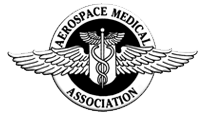EAA’s Sport Aviation, John Hastings, M.D.
1 Something has changed: If a change has occurred since your last airman physical, assume the FAA will show an interest. If you have to answer “yes” or report a new condition, expect questions. Anticipate the FAA’s questions. Remember, they are looking at a paper record in search of conditions that might compromise aviation safety. Obtain the records that explain the situation before you see your AME for your flight physical. Call your AME for guidance as to what information is necessary. If you have doubts about your condition or know that the condition is disqualifying and will require special issuance, contact the EAA Aeromedical Assistance Program for advice before your examination. Often it is possible to appear for your exam with all the records needed for a decision. At times on-the-spot certification is possible if information is sufficient. If not, deferred issuance will be processed much more quickly in Oklahoma City.
2 Responsibility: The one person with the greatest interest in you securing medical certification is you, the pilot. Your primary care physician, specialist, and AME may be sympathetic and willing to help, but you alone can keep the process moving and ensure all necessary information is gathered. Non-pilots may have difficulty understanding what it means to be grounded. They are used to routine requests and don’t understand your urgency. Don’t delegate record gathering to others unless you are willing to accept frustrating delays.
3 Documentation; The most common cause of certification delay or denial is lack of documentation. This simply means the FAA has insufficient information on which to base a decision. This leads to endless cycles of correspondence with the FAA, each consuming months of precious time. The pilot may not know what information must be gathered; your attending physician and consulting specialist are seldom familiar with the aeromedical certification process. Your AME may be unfamiliar with problem cases. With documentation, your AME may be able to obtain on-the-spot certification, or can send a complete package to Airman Certification Division. Call the EAA Aeromedical Advisory program for assistance, information sheets and documentation checklists.
4 Record Gathering: The FAA may want emergency room notes, ambulance records, history and physicals, laboratory studies, X-ray and imaging studies such as CT scans, EKG’s, EEG’s, and MRI scans. At times reports of procedures will suffice, and at times the actual studies are requested. Read carefully the FAA request for information, and be diligent in obtaining the information. This is all part of documentation. Use the information sheets and checklists available in the Aeromedical Advisory Program when applicable. Your AME may possess previously gathered needed information.
5 Flying Fitness Decisions: Your primary care physician or the specialist you see for a condition does not have authority to say you are “fit to fly.” Most are not familiar with FAA aeromedical standards. Your AME or the FAA must decide how your individual situation might affect aviation safety. Fitness to fly is an aeromedical decision that cannot be delegated to others. It is helpful to have all consultants to state in their letters (if they can) that you are “no more likely to be suddenly incapacitated by your condition than anyone in the general population.”
6 Single Package Planning: Presently the FAA certification system is paper-based. If your AME sends in your physical, followed by additional information that trickles in over weeks or months, lengthy delays will result while information finds its way to your record. Frustrating delays can be avoided by assembling a complete package of information to be sent in with your airman physical. Send by express delivery to assure arrival and to obtain a receipt signature.
7 Use the EAA Aeromedical Advisory Program: Contact Information Services if you have a problem or anticipate a problem. Information is available that can help you, your primary care physician, your consulting specialist and often your AME who seldom encounters problem cases and may not know what you need.. This program is dedicated to you and your certification. 2000 airman medical certificate applications arrive each day at Airman Certification Branch in Oklahoma City. 975 (nearly 50%) are rejected for a deficiency, and all require manual review. This slows the system greatly. At least 500 are rejected due to inadequate documentation, the single greatest cause for rejection. Others have missing information or perhaps were incorrectly issued. Imagine the liberating effect that would result from a reduced rejection rate. With fewer errors and better documentation all are winners. The pilot, EAA, the AME, your physician, your consulting specialist, and the FAA all benefit from this cooperative effort. This program is for you.
Contact Pilot Medical Solutions at 405-787-0303 for confidential FAA medical certification support.



